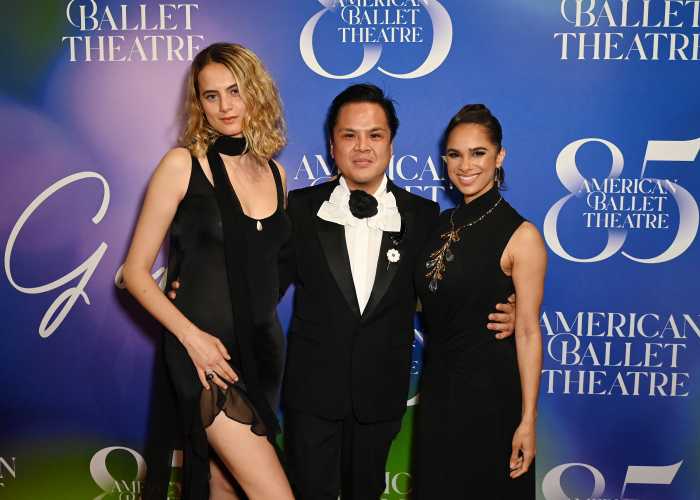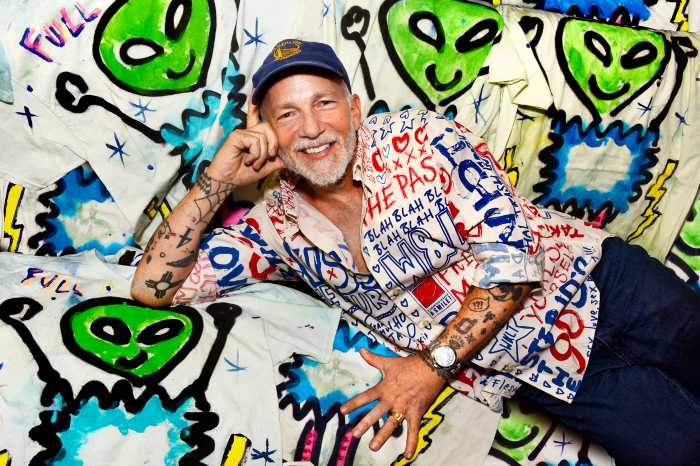A 21-year-old budding NYC entrepreneur went old school to catapult sales of his “I Met God, She’s Black” T-shirts.
Coming out of a Bowery Ballroom concert months ago, NYU student Dylan Chenfeld saw a guy promoting a band by applying posters to walls with wheat paste. A conversation about the DIY marketing method led the East Villager to design posters promoting the garment, blanketing every available vertical surface outside the city’s major media outlets with posters depicting his “I Met God, She’s Black” T-shirts.
Chenfeld’s creative guerrilla marketing talents got the T-shirts onto the bodies of Drake and model Cara Delevingne, and earned him a write-up in the Huffington Post published Saturday that resulted in a “a massive sales and press spike,” he said.
HuffPo employees told him, “‘We see your posters everywhere!’ But I put the posters up right outside their office so they would see them,” Chenfeld explained.
The moral? Creativity counts in the new world of anything goes guerrilla marketing. “I’ve never had paid advertising,” said Chenfeld, who declined to share his sales figures. He sells the shirts through his site, rooftopsnyc.com, that he has been running since attending the Professional Children’s School on the Upper West Side, then using the website to book and promote bands.
He caught a lucky break when his celeb pal Zoe Kravitz — an actress and daughter of Lenny Kravitz — and members of her band, Lolawolf, wore the $30 shirt.
“The guys in the band said, ‘give us some shirts and we’ll give them to Drake,'” which they did, he said.
Chenfeld, a self-described “Jewish agnostic guy” was thrilled when his favorite rapper Drake was photographed wearing his T-shirt.
The Cara Delevingne coup was anything but random: Chenfeld found the name of the model’s agent and then put a shirt in a package using the agent’s name as a return address, figuring Delevingne would be more likely to open a package sent by someone she knew. Then, he sneaked into the fancy hotel where Delevingne was staying and plopped it in a package pile destined for guests: “The next day, she put it on Instagram!” Chenfeld targeted Delevingne because she has “global influence,” (the model has 8.8 million Instagram followers) though less famous people also earn his consideration. He got the owner of the famous Paris boutique, “Colette,” to carry the shirt after guessing about 60 different email addresses to contact her.
Chef Roble, the Bravo TV chef, has also been snapped in the shirt.
Chenfeld has been flattered by social media users who presume him to be African American and hurt by those who snipe he’s profited at the expense of black people. “That’s slander! I’m not! Whoever wants to buy it can buy it!” he said.
Though he did not coin the phrase, the now-famous sentiment was inspired by a childhood of watching cartoons in which God was always depicted as an old white guy — a presumption Chenfeld found irritating. He decided that “I Met God, She’s Black” was a clever “cultural statement about accepted non-truths” and put it on a shirt to “to get more strangers to talk to me on the street.”
“You just want to make interesting, cool things you like that hopefully other people will like as well,” explained Chenfeld.
Now he is creatively scheming how to promote his “Love is Love” shirts with three different pairs of interlocking gender symbols.
By the way — what did God say when he met Her?
“She said to make sure the House stays Democratic,” said Chenfeld. “I can only hope we step up our game.”


































